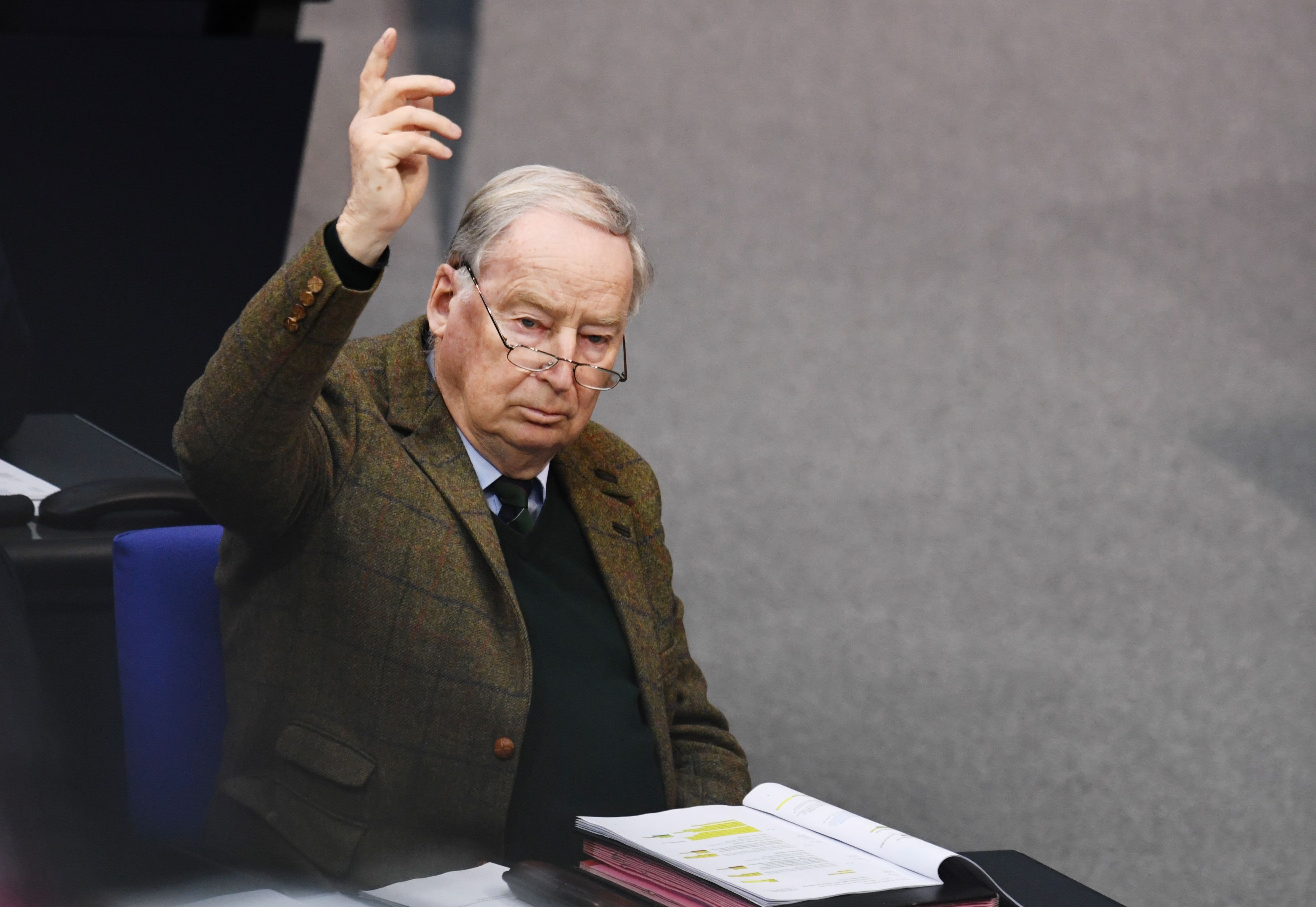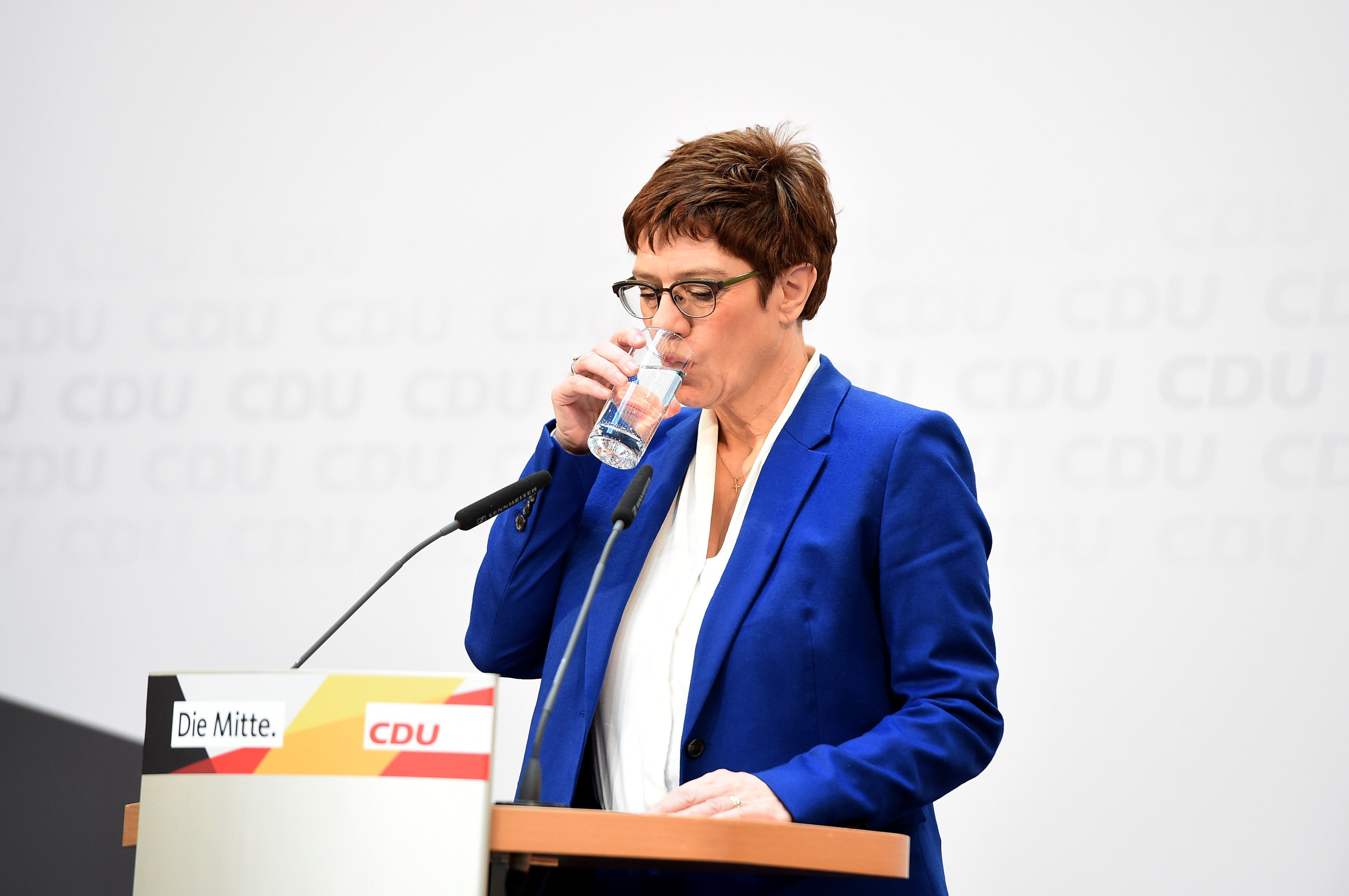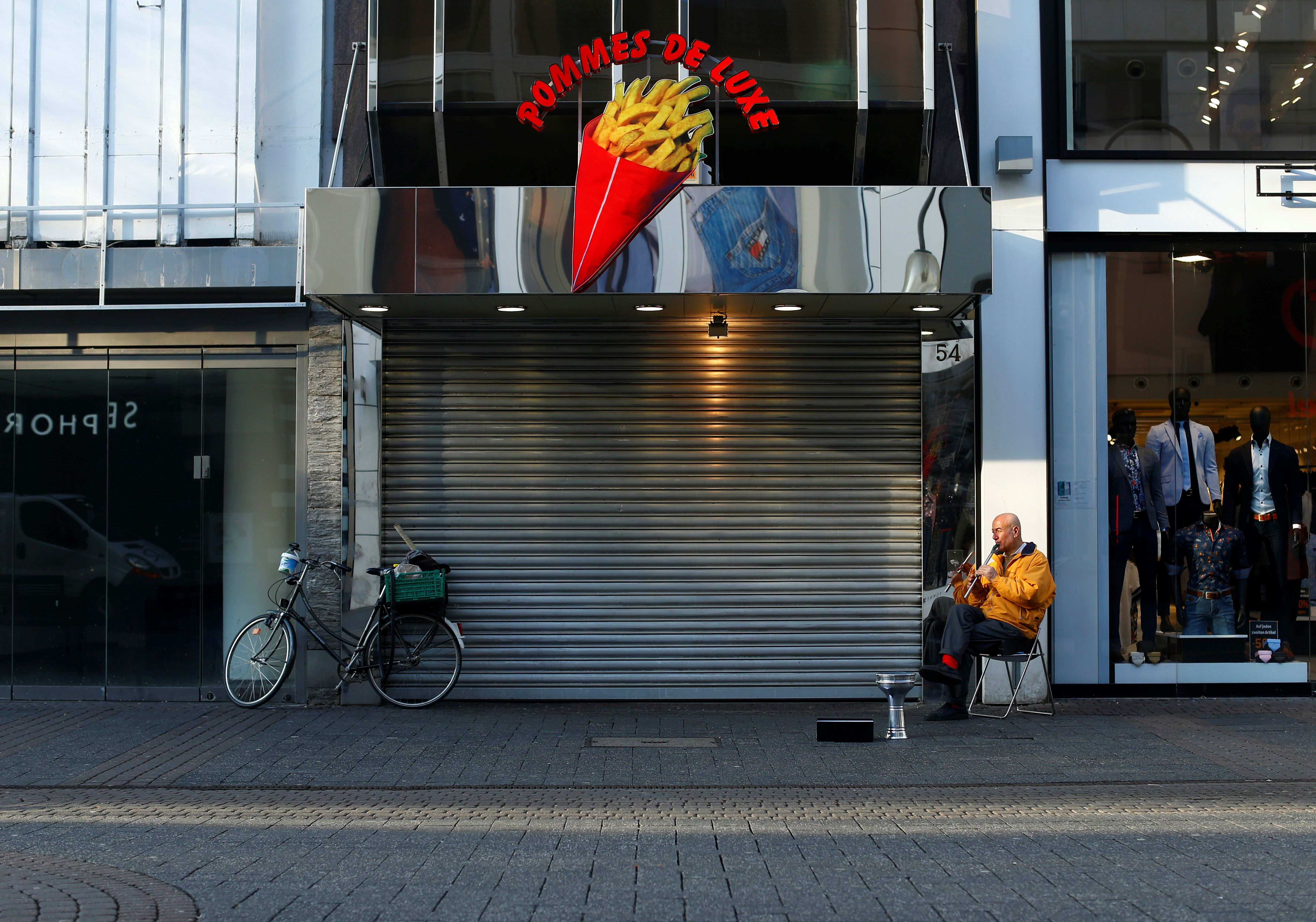Dangerous Liaisons: The Alternative for Germany and Right-wing Extremism

Until recently, neither links between Alternative for Germany and right-wing extremist groups nor accusations of using rhetoric promoting right-wing radicalism have hurt the AfD’s ratings. During the election in Thuringia in October 2019, two weeks after the attack on the synagogue in Halle by an extreme right supporter, AfD won 23.4% votes, becoming the second largest party in the local landtag. In February this year, the murder of 10 people in Hanau, probably motivated by racism, did not significantly affect the AfD’s result in the election to the Hamburg city council. Contrary to forecasts, the group exceeded the 5% electoral threshold.
The lack of a clear exodus of voters during the recent state elections does not mean that the actions of supporters of the far right are not a serious problem for the party. The AfD is increasingly identified as the political representation of this milieu. As a result, polls show a decline in support for the AfD, which in the second half of March fell to 10–13%. For a party interested in participating in governing and acquiring new voters, its revised image may risk winning less than 10% of the vote and further weakening its coalition capacity.
Risk of Division
The main problem for the AfD is the observation by the Federal Office for the Protection of Constitution (BfV) of the radical in-party faction The Wing (der Flügel), which BfV has hitherto qualified as a “suspected case”. In March this year, German counter-intelligence reported that gathered information confirms the extremist nature of the group, exemplified by, among other things activists’ use of anti-Semitic, nationalist and anti-democratic slogans. This means that, according to special services, the radicalisation of The Wing is progressing and threatens Germany’s constitutional order.
At the same time, The Wing’s expansion is a source of tension within the AfD. On the one hand, the party owes their successes in last year’s elections in eastern Germany to The Wing’s activity and strong position in that part of the country. On the other hand, xenophobic and racist statements by members, and relationships with neo-Nazi groups, invariably cause internal party conflicts. In July 2019, over 100 members of the group signed the call for a “united and strong AfD”. The main point of the response was a criticism of the actions of The Wing leader and chairman of the AfD in Thuringia, Björn Höcke, who was accused of promoting a cult of personality and dividing the party. In March this year, after the announcement of the BfV decision to observe The Wing, a letter calling on the AfD federal board to take action in relation to the activities of the faction threatening the existence of the whole party was issued by, among others, Rüdiger Lucassen, the leader of the group in North Rhine-Westphalia. As a result, the federal board of the party decided that The Wing must be dissolved by April 30.
Political Isolation
The most serious consequence of AfD’s associations with the extremist milieu is the lack of coalition capability. For mainstream political groups, working with a party that maintains contacts with neo-Nazi organisations would undermine ideological foundations and result in losing credibility with voters. The problem particularly concerns the centre-right CDU.
In 2019, some of the Christian Democrats’ activists in the east of Germany signalled their readiness to cooperate with the AfD, but this possibility was definitely rejected by the federal board of the party. The Christian Democrats were afraid that a coalition with the AfD would contribute to the exodus of centrist voters, some of whom would support the Greens, who are the most serious challengers to the Christian Democrats. In addition, coalition with the AfD could lead to a crisis in relations with the CSU. The CDU is afraid that establishing cooperation with the far right could undermine the traditional alliance with the Bavarian Christian Democrats. The AfD has therefore little chance of breaking the alliance, which condemns it to remain in opposition. However, with their chosen party lacking the ability to directly influence regional and federal politics, the AfD electorate may soon become demotivated. It is possible that its voters will begin to perceive further support for the party as a waste of votes and decide to change their electoral preferences.
Glass Ceiling Support
Links with the far right are also an obstacle to attracting moderate, conservative voters to the AfD. In 2018, BfV designated 12,700 supporters of extremist right-wing organisations as violent. At the same time, the number of violent crimes committed by right-wing extremists increased by 3.2%. Meanwhile, in surveys carried out during last year’s elections to the European Parliament (EP), 84% of respondents said that the AfD did not sufficiently distance itself from far-right views. This is a fundamental problem in attracting voters in western Germany. Its significance is demonstrated by the results of elections to the EP, during which the best AfD result in the “old lands” was to win 10% of votes in Baden-Württemberg. For comparison, the group in the eastern part of Germany enjoyed support of 18–25%. There is also a problem winning votes in large cities. Despite high popularity in the former East Germany, the AfD managed to win only in Dresden among the capitals of the eastern länder in the 2019 EP elections.
AfD management is concerned about the programme changes that will occur in the CDU after choosing a new leader. The most serious candidates for the post of chair of the Christian Democrats are Armin Laschet and Friedrich Merz, who have announced the group’s programme renewal, which probably means strengthening the conservative profile of the party. For AfD voters, Christian Democrats with new leadership and this programme can be an attractive election alternative. Both contenders for taking over leadership in the CDU have announced attempts to regain former voters who, disappointed by the party during Angela Merkel’s presidency, decided to support the AfD. An additional argument in favour of the CDU may be the capable action of the government during Covid-19 pandemic, and the minimisation of the impact of the epidemic on the German economy.
Conclusions
The AfD’s links with the extremist right will be a serious obstacle to strengthening its position on the German political scene. Further xenophobic attacks may result in a fall in support for the AfD during the federal elections in Baden-Württemberg and Rhineland-Palatinate in March 2021. The party’s image will not be improved by the decision to dissolve The Wing, as the faction’s members will remain in the AfD and will continue to be under BfV observation. This may lead to activists leaving the group, resulting in a split within the party and loss of votes during Bundestag elections. The group is also threatened by changes that will occur after the CDU elects new leadership. The outflow of moderate AfD voters to the Christian Democrats would weaken the party and threaten to marginalise it.
For the AfD, there is an opportunity to divert attention from links with right-wing extremists by capitalising on the potential increase in Germans’ fear that the refugee crisis of 2015 to 2016 will be repeated in the wake of the Turkish government’s withdrawal from the migration agreement reached with the EU in 2016. The AfD will also use its image as an anti-system party to attract voters in the event of a sharp deterioration of the economic situation in Germany or an ineffective government policy regarding the COVID-19 pandemic.
An intra-party crisis and split in the AfD would weaken the position of the group in the regions of the former GDR. This would facilitate the construction of regional governments and minimise the risk of local political crises that threaten to destabilise the internal situation in Poland’s western neighbourhood. In addition, the AfD’s marginalisation would reduce the risk of a party with pro-Russian sympathies, an anti-European programme and relations with neo-Nazi groups gaining direct influence on Germany policy.





